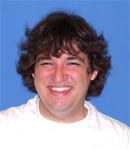The technique, dubbed VEGAS and created in the lab of Bryan L. Roth, works in mammalian cells and can yield useful new molecules within days, providing scientists with a powerful new research tool and a potential route to better therapeutics for various diseases.
CHAPEL HILL, N.C. – UNC School of Medicine scientists created a powerful new “directed evolution” technique for the rapid development of scientific tools and new treatments for many diseases.
The scientists, whose breakthrough is reported in Cell, demonstrated the technique by evolving several proteins to perform precise new tasks, each time doing it in a matter of days. Existing methods of directed evolution are more laborious and time-consuming, and are typically applied in bacterial cells, which limits the usefulness of this technology for evolving proteins for use in human cells.
Directed evolution is an artificial, sped up version of the evolution process in nature. The idea is to focus the evolutionary process on a single DNA sequence to make it perform a specified task. Directed evolution can be used, in principle, to make new therapeutics that work powerfully to stop diseases and have few or no side effects. The initial groundbreaking scientific work on directed evolution won the 2018 Nobel Prize in Chemistry.

“What we have developed is the most robust system yet for directed evolution in mammalian cells,” said study lead author Justin English, PhD, a postdoctoral research associate in the Department of Pharmacology at the UNC School of Medicine.
“The scientific community has needed a tool like this for a long time”, said study senior author Bryan L. Roth, MD, PhD, the Michael Hooker Distinguished Professor in the Department of Pharmacology at the UNC School of Medicine. “We believe our technique will accelerate research and ultimately lead to better therapeutics for people suffering with many of the diseases for which we need much better treatments.”
~Read the full article by Mark Derewicz at SOM News…
~Read the article in Cell: English et al., 178(3): P748-761.E17, 2019.

